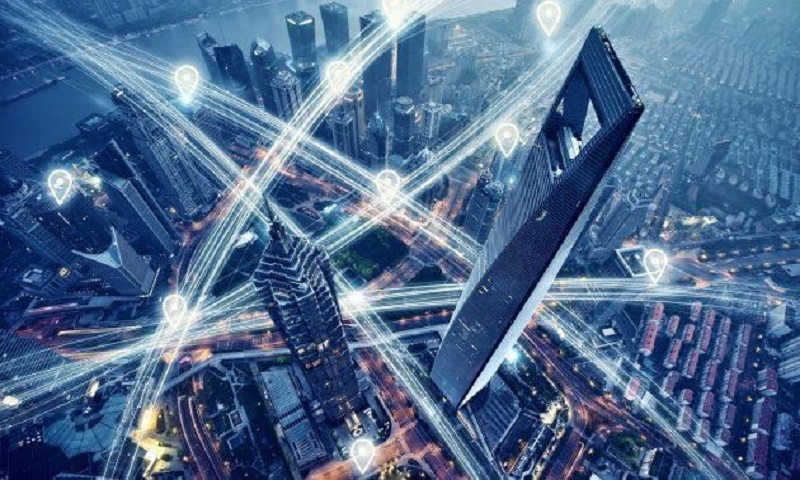热点论文:5G/6G引领社会新进步——图书馆前沿文献专题推荐服务(10)
2020-05-11

突如其来的新冠病毒肆虐全球,人类社会正在面临前所未有的个人健康和社会秩序危机,病毒的出现甚至大范围改变了人们的生活方式和习惯,远程视频会议、网络教育、大数据抗击疫情等科技手段越来越多的介入了人们的日常生活。作为致力于于通信、信息、计算领域进行研究的我们,在推动技术发展的同时,也不禁会越来越多地思考我们研究的技术,究竟能够带来什么样的社会价值?能够解决什么样的社会问题?抑或有助于人类社会从严重的危机中恢复。
本期同样选取了4篇文献,涵盖了关于病毒、疫情等危机带来的社会责任讨论,如何构建更加绿色高效的未来通信网络,6G研究课题下的热点技术以及应用场景等内容,推送给相关领域的科研人员,以期共同探讨。

Tech in a time of crisis
Nature Electronics,2020,3: 181
Does smartphone surveillance have a role to play in the fight against the coronavirus pandemic?
The 6G Wireless Summit was scheduled to take place in Levi, Finland on Tuesday 17 March. Five days before, the event was cancelled: 17 students at the University of Oulu, the institution organizing the summit, had been diagnosed with COVID-19. Given the wider context of the ongoing coronavirus pandemic, the cancellation was a minor inconvenience for the researchers in academia and industry that were planning to come together to discuss the future of wireless communications technology. And thanks to the resourcefulness of the organisers, the event was quickly retooled as a virtual event, with online presentations, Q&A sessions, and discussion forums.
Back in January, we highlighted the potential of the latest generation of wireless communications technology — 5G — and our exploration of the topic continues in this issue of Nature Electronics. In a Comment article, Shuangfeng Han and colleagues at the China Mobile Research Institute argue that 5G has an energy problem: the 5G era is expected to lead to a substantial increase in the power consumption and carbon emissions of wireless communication networks. And thus, developing strategies to optimize energy efficiency must be a priority for the industry.
Communications technology has taken on a renewed significance in recent weeks — labs and offices closed, social distancing practices imposed, working from home where possible — and is helping friends, families and colleagues to stay connected. But is there another role for the technology in the fight against the coronavirus pandemic?

Energy-efficient 5G for a greener future
Chih-Lin I, etc.
Nature Electronics,2020, 3:182–184
The power consumption and carbon emissions of wireless communication networks are expected to substantially increase in the 5G era. The communications industry must therefore develop strategies to optimize the energy efficiency of 5G networks, without compromising spectrum efficiency.

Toward 6G Networks: Use Cases and Technologies
Marco Giordani, etc
IEEE Communications Magazine,2020,58(3): 55- 61
Reliable data connectivity is vital for the ever increasingly intelligent, automated, and ubiquitous digital world. Mobile networks are the data highways and, in a fully connected, intelligent digital world, will need to connect everything, including people to vehicles, sensors, data, cloud resources, and even robotic agents. Fifth generation (5G) wireless networks, which are currently being deployed, offer significant advances beyond LTE, but may be unable to meet the full connectivity demands of the future digital society. Therefore, this article discusses technologies that will evolve wireless networks toward a sixth generation (6G) and which we consider as enablers for several potential 6G use cases. We provide a fullstack, system-level perspective on 6G scenarios and requirements, and select 6G technologies that can satisfy them either by improving the 5G design or by introducing completely new communication paradigms.

Communications in the 6G Era
Harish Viswanathan, etc
IEEE Access,2020,8: 57063 - 57074
The focus of wireless research is increasingly shifting toward 6G as 5G deployments get underway. At this juncture, it is essential to establish a vision of future communications to provide guidance for that research. In this paper, we attempt to paint a broad picture of communication needs and technologies in the timeframe of 6G. The future of connectivity is in the creation of digital twin worlds that are a true representation of the physical and biological worlds at every spatial and time instant, unifying our experience across these physical, biological and digital worlds. New themes are likely to emerge that will shape 6G system requirements and technologies, such as: (i) new man-machine interfaces created by a collection of multiple local devices acting in unison; (ii) ubiquitous universal computing distributed among multiple local devices and the cloud; (iii) multi-sensory data fusion to create multi-verse maps and new mixed-reality experiences; and (iv) precision sensing and actuation to control the physical world. With rapid advances in artificial intelligence, it has the potential to become the foundation for the 6G air interface and network, making data, compute and energy the new resources to be exploited for achieving superior performance. In addition, in this paper we discuss the other major technology transformations that are likely to define 6G: (i) cognitive spectrum sharing methods and new spectrum bands; (ii) the integration of localization and sensing capabilities into the system definition, (iii) the achievement of extreme performance requirements on latency and reliability; (iv) new network architecture paradigms involving sub-networks and RAN-Core convergence; and (v) new security and privacy schemes.